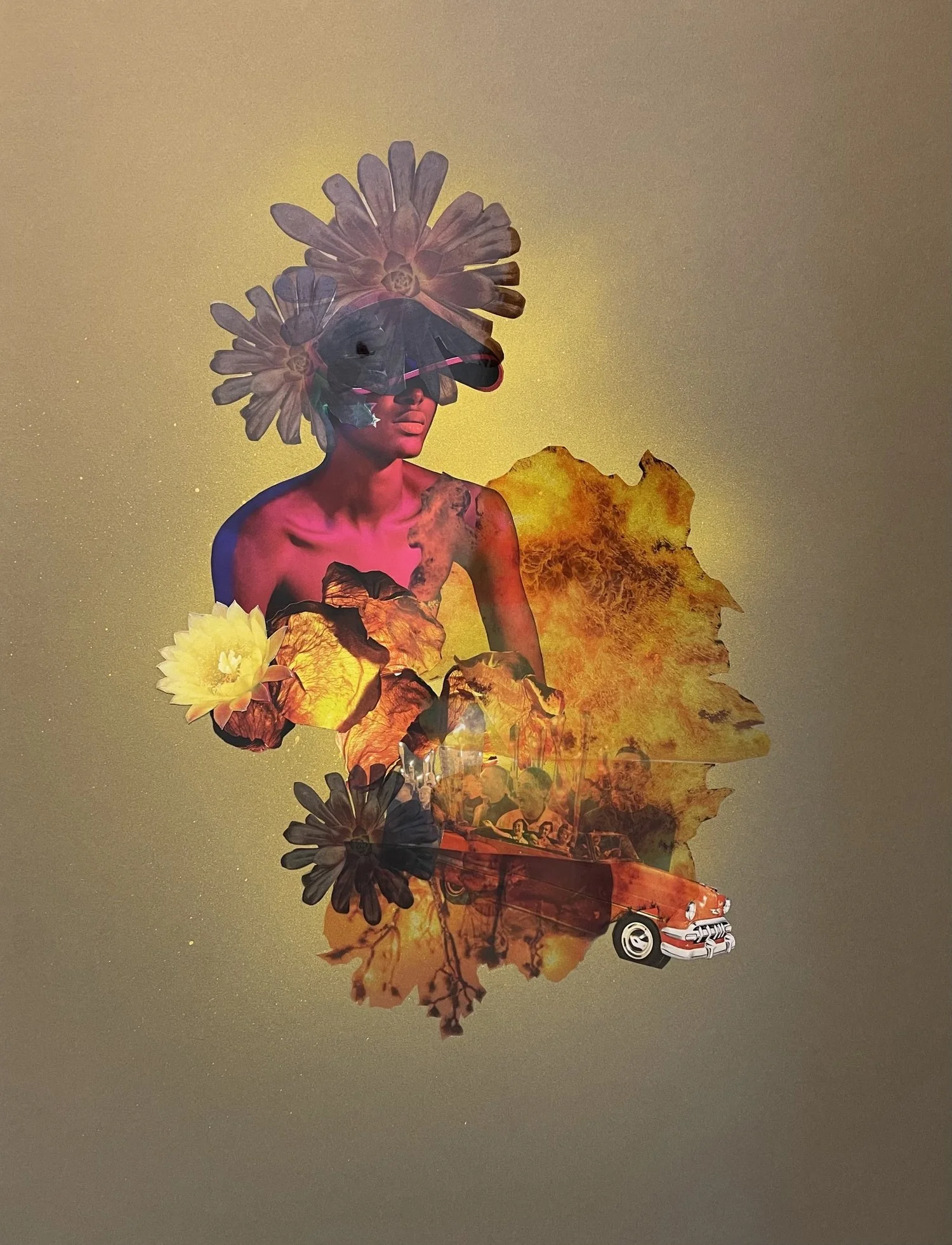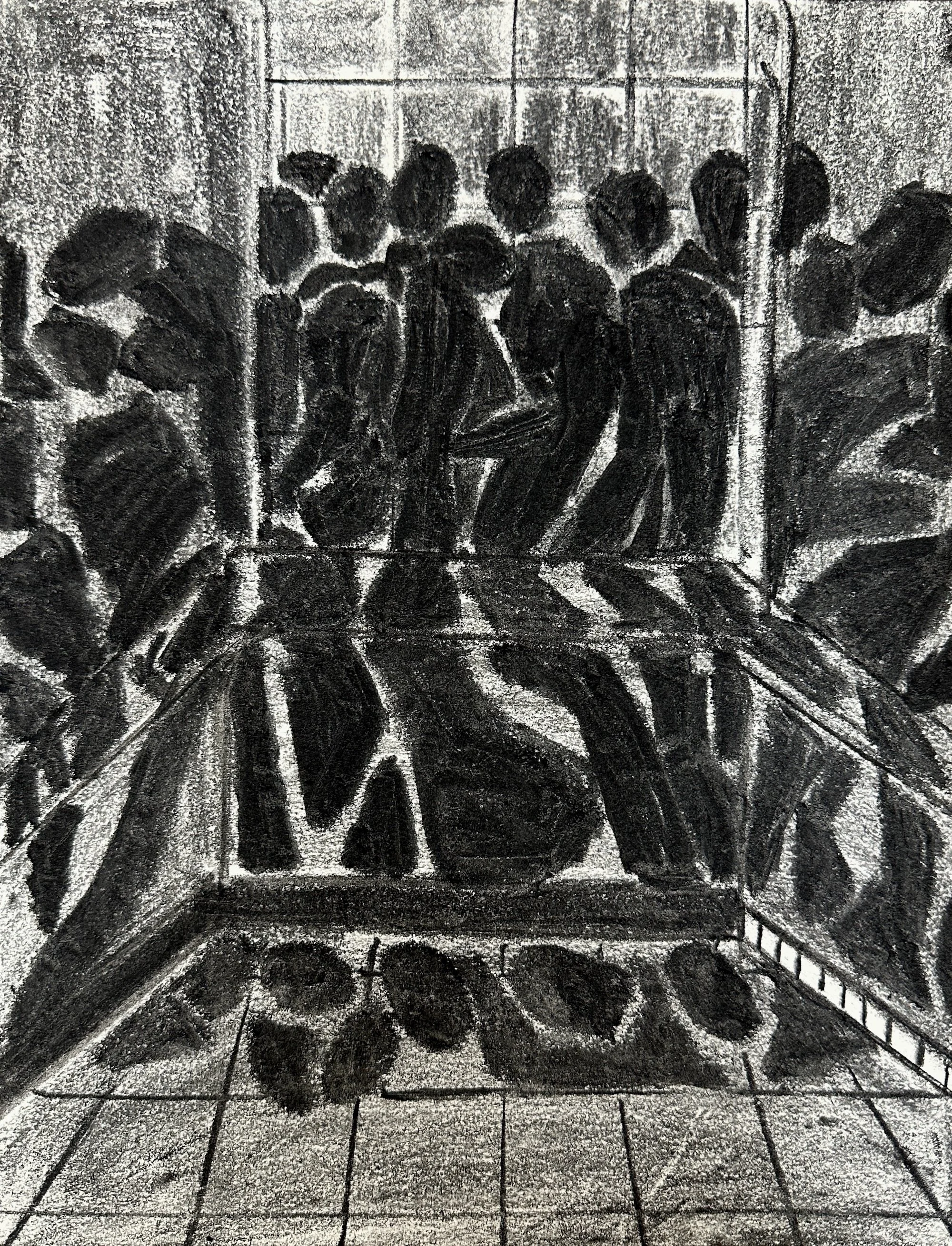Alireza Khatami: Iran’s Dissident Director of Absurdist Cinema
By Robert Hirschfield
Somewhere in Tehran, a father is trying to register the name of his newborn son “David.” The registrar rejects the name. The man is accused of “promoting a foreign culture.” He stands firm. His wife likes the name David. It is the name of her favorite author. The registrar softens. What about the name of his favorite author? Gholan Hossein Saaedi! “Such a beautiful name!” the official says. The father is unpersuaded. Besides, he says, “It’s an Arabic name, not Iranian.”
“So long as it’s a religious name it’s not a problem.” The registrar, like all the functionaries in Alireza Khatami’s film Terrestrial Verses (2023), co-directed by Ali Asgari, is never seen, underscoring his refusal to see the individualized humanity of those seeking jobs, drivers’ licenses, lost dogs, script approval. An unbroken procession of Kafka’s children. Khatami depicts Iran as a state where not even names are yours to choose. As in his previous “Verses” film, Oblivion Verses (2017), set in an unnamed Latin American country, the Toronto-based director depicts tyranny on a loom rich with absurdist threads. “Artist activists.” Khatami wrote in an email, “have a long history in contemporary Iranian culture. In a society where traditional channels of expression are constrained, social critics have found alternate ways of influencing public discourse. This role has historically been filled by writers, poets, and increasingly filmmakers.”
From “Terrestrial Verses” (2024), directed by Alireza Khatami and Ali Asgari
In Khatami’s work, ridicule, irony, and a highly refined moral intelligence intermingle. In some ways, the two films cannot be more different. For one thing, the earlier film Oblivion Verses is in Spanish, not Farsi. It is not a collection of vignettes, like Terrestrial Verses, but a long-form story with mythological markings. It is about an invisible country that is neither an oil producer or a regional power. Invisibility is a subject Khatami as an exile can relate to. The focus of Oblivion Verses is on an old, mortuary caretaker haunted by the news of a beached whale. He is in possession of the body of a young woman killed in an anti-government protest. As soldiers were seizing the bodies of protestors for anonymous disposal, the caretaker is secretly arranging to have the woman, his mortuary’s last unburied corpse, decently buried before the soldiers find her.
Khatami’s sensitivity to dignified burials goes back to his childhood in Darab in southern Iran. During the Iran-Iraq war, the death toll was so high the bodies of many slain soldiers were never retrieved for burial by their families. One such soldier was from Darab. “They identified his boot,” the director recalled in an email. “That’s what they buried. The Iran-Iraq War had a profound effect on me. It likely marked the beginning of my social consciousness.”
The Iranian director Khatami most closely resembles is Jaffar Panahi, who was jailed in 2022, not for the first time, for protesting the jailing of two other directors, Mohammad Rasoulof and Mostafa Aleahmad. Panahi’s Offside (2006), about the detention of young girls who disguise themselves as boys so as to circumvent Iran’s male-only soccer spectator policy, has some of the absurdist feel of Terrestrial Verses. As the stadium bathrooms are only for men, a sensitive soldier must beat back male spectators at the door while the detainee is peeing. The girl was previously affixed with an eye mask to shield her sensibility from the vulgar graffiti in the bathroom. In his humanistic approach and selection of ordinary Iranians as subjects, Khatami is in line with the other directors he is most influenced by: Iranian master Abbas Kiarostami, Yasujiro Ozu of Japan, and Charlie Chaplin.
Khatami’s vision of relating to an audience is almost mystical: “When somebody in the solitude of their own connects with what I have created in my own solitude, there is a connection of two souls miles away” (from the Centre National de l’audiovisuel interview, Luxembourg, 3/10/24 (https://cna.public.lu)).
From “Oblivion Verses” (2018), directed by Alireza Khatami
The particular solitude of citizens living under dictatorship is explored by Khatami in its many variations. In Terrestrial Verses, he frames subjects in their encounters with authority as solitary creatures in featureless spaces, abandoned, left to rely on their own limited resources. A poet seeking a driver’s license, who writes poetry on his body, is accused of not being “normal.” When the official demands, “Pull up your shirt. Let me see,” the poet offers to read him the poem instead. “Take off your shirt,” the official insists. “I need to read all of it.” The space takes on the choked dimensions of a torture cell. The poet removes his shirt. The official is not done with him: “Do you write ‘down there’ too?”
Khatami is drawn to “poets who reveal a version of myself I didn’t know existed,” as he wrote in an email. They range widely, from Saaedi, the registrar’s favorite poet, to Rumi, and crossing oceans, to Lorca, Borges, and Langston Hughes. The poem on the poet’s body (I am drunk/ and you are insane./ Who will take us home?) eerily echoes the opening lines from Holocaust poet Paul Celan’s Oblivion: The world is gone, I must carry you. Lines that define Khatami’s central character, a shambling, indestructibly silent and remote mortuary caretaker. On the surface, he is a strange candidate to carry anyone through the shark-infested waters of dictatorship, but he embodies the world of lost humanity. A kind of beached whale himself in a land that has been sequestered by inhumanity.
An identifiably Khatami creation, the caretaker undertakes a heroic journey through bureaucracy. The director invents a clock-cluttered chamber, deep underground, in which time itself seems to have stopped. The official, with Kissinger’s trademark gravelly voice and a swiveling head that seems borrowed, tries to advise the old man about obtaining a burial permit. But every few seconds, the alarm of one of his clocks go off, and he cannot imagine why. The scene twins perfectly with the final “verse” of Oblivion Verses, where an official, more corpselike than human, is seen sleeping through an earthquake that shakes Tehran.
For offbeat directors like Khatami, the film festival, if not an earthquake, is an event charged with ground-breaking possibilities. “Film festivals are the gatekeepers for the audiences we make films for,” Khatami said at one point during the Luxembourg interview. “If the gatekeepers don’t select me, I have no voice. You are at the mercy of the politics the film festivals bring to the table.” In other words, Khatami himself is a version of his characters in Terrestrial Verses. Fortunately, Iran was on the table at Cannes in 2023, and his and Asgari’s film came away with a “certain regard” award that facilitated finding a distributor.
When asked about the reception in the US to his acclaimed film (hailed by New York Times film reviewer, Jessica Kiang as “evocatively accusatory”), Khatami, reached by email in a Tokyo airport, replied cryptically, “In the US it’s illegal to self-incriminate, so I leave this question…”
From “Oblivion Verses” (2018), directed by Alireza Khatami
Robert Hirschfield is a New York-based journalist and haiku poet. His articles and poetry have appeared in Parabola, Modern Haiku, Tricycle, Banyan Review, Haiku Canada Review, and other publications.






‘It was early January, and the snow had come down that day like an epiphany.’ – an essay by Max J. Nam.